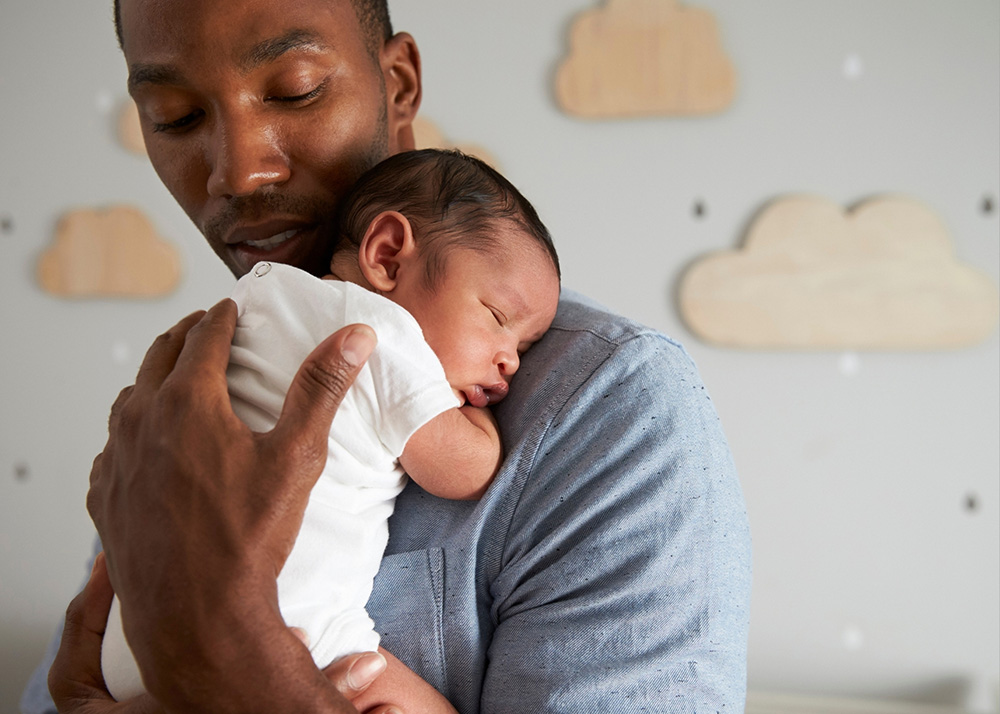Most of us assume that newborns sleep a lot, and that it’s the parents who don’t due to the frequent feedings. But, what happens when your newborn doesn’t sleep so easily? And if they do sleep, how long will that last and are there things we can do now, to help set our little ones up with habits for long term healthy sleep success? I struggled with my daughter in those early months as she became more difficult to settle and put down. I wish I knew then what I know now about a few easy things you can do to tap into biology, in order to help get baby, and everyone, the sleep they need to enjoy those precious months.
Sleep Environment
The ideal sleep environment is cool, dark and quiet.
Sign Up For Our Newsletter

Our bodies are conditioned to sleep best in dark and cool places, just like in caveman days when those were the safest places for humans to sleep. Melatonin production is linked to a lower body temperature and a lack of daylight, both of which control our circadian rhythms. Babies younger than 3 months don’t have an established circadian rhythm so we need to help manage their sleep environment in order to signal a safe environment for sleep. The right environment can encourage falling asleep more quickly as well as promote a more restful sleep. Find out more about sleep environment here.
Overstimulation
Newborns get tired pretty quickly, typically within 30 – 60 minutes depending on how young they are. The world, in general, can also be quite exciting. Taking in all the sights and sounds of a busy household can be very stimulating for a very young baby. Keeping a close watch of the clock and his tired signs is very important to ensure he doesn’t become overtired. Yawning, rubbing eyes, pulling ears, and turning away from stimulus are clear signs he is past the point of being tired and is now overtired. Try and put baby down before this happens and you’ll notice you’ll have better success.
Routine
Babies crave a predictable routine as it helps them feel more at ease and in control of their environment. At 6 – 8 weeks your baby can now recognize simple patterns, like a bedtime routine. Start a simple and soothing routine that you and your baby enjoy, and use it each time before you put him down. It could include reading, singing, swaddling and feeding, but make sure this routine isn’t too long. It will become his cue that sleep is coming and he will be more relaxed if he knows what to expect.
Evening Fussiness
Early evening fussiness is very common until 3 – 4 months old. So, during this difficult time, try and remember the five S’s to help soothe baby. Swaddling | Shushing | Sucking | Swaying | Side position.
Holding your baby while enacting all 5 elements will help baby feel more comfortable as you’re recreating the feeling of being in the womb. Once baby is calm or asleep, try placing them down feet first and on their back. You can leave your hand on their chest as you transition them to independent sleep.
Setting up healthy practices in the beginning can really go a long way to helping your baby stay well-rested and better able to take on all the developmental milestones ahead of him. Contrary to popular thought, it isn’t possible to spoil a newborn, so whatever is working to help your baby to sleep, keep doing it. As your baby develops, you’ll be able to allow small opportunities for him to practice self-soothing skills, and gradually work towards independent sleep.
Visit our page here for Good Night Approved Products for items that will help you with some of the tips above.






